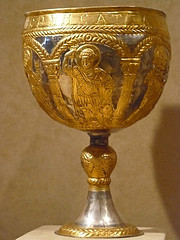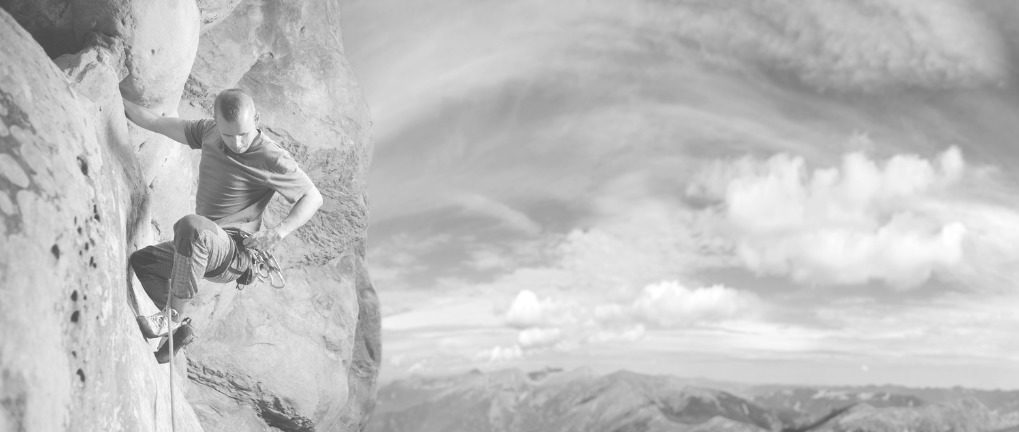 One of the most enduring aspects of the legend of King Arthur is the quest for the “Holy Grail.” According to legend, the Holy Grail was the cup Jesus drank from at the last supper, and which was brought to Britain and hidden.
One of the most enduring aspects of the legend of King Arthur is the quest for the “Holy Grail.” According to legend, the Holy Grail was the cup Jesus drank from at the last supper, and which was brought to Britain and hidden.
Kept in a castle in a desolate wasteland it was guarded by the Fisher King, a man who suffered from a wound that would not heal. The legend goes that if one could only gaze upon the cup, one’s life would become complete.
Many people have their own form of the “quest for the Grail.” The Grail for them is a sense of power they believe they lost or had taken from them. They believe that this power resides in some place outside of them; in another person, a job, an award, money, possessions, position, titles.
For others their relationship to the Grail of power is like that of the “Fisher King.” Power is possessed by something in their past that has left a wound that feels like it will never heal.
They may be continuing this wounding in the present through bad relationships, the misuse of substances, and the inability to make changes they want or need to make in their lives. Power is an enemy that works to overwhelm and disadvantage them. They look at power not in joy and awe, but with fear and despair.
Any way you look at it, our understanding of and relationship to power is critical to our health and well being. The simple fact is that any control we will ever have over our own destiny means we will have to take steps to solve our own problems, and we need power to do that.
So what do we need to understand as we journey to find our power?
(1) Know the difference between real power and the illusion of power.
The paradox of the Grail legend is that those who sought it finally discovered that it was the power of their faith and belief, and not the cup itself, that changed their lives and gave them strength. They came to know the difference between real power, which always resides in us, and the illusion of power which we can project into things outside of us.
“Power” is defined as the ability to do or to act. Discovering our power means focusing on doing and acting in our own lives. Doing and acting to create changes in our life ultimately gives us momentum, and this momentum will give us more and better choices over time.
The lesson of the Grail is that true power is always an internal reality reflected in our continuing commitment to act and to do what is needed in our own lives to make them better. Because of this simple fact, we need to be mindful that true power is not, and never can be, an external commodity, person, or thing.
(2) As an adult, your power can’t be taken from you; you can only give it away.
Many of us as children had our sense of personal power taken from us. We may have felt overwhelmed by family issues, poverty, trauma, rejection, substance issues and other things that led us to believe we could have little if any say in our own lives.
That was all real, unfair and possibly tragic. But that was then and this is now. Reclaiming our sense of lost power begins when we remember that we are now adults, and that simple but all important fact gives us not only the power but, also, the absolute right to choose how we live our lives.
The ultimate power of the universe lies in the power of “Now.” Whatever bad things happened in the past, whatever you were told you couldn’t achieve, you couldn’t be, or you’d never do, you have the power in each moment to decide whether or not that will rule your present!
In this moment you can decide to get help and support from others if you need it; learn a new skill, get out of a bad relationship, change careers, and strengthen your relationships with those you love.
You alone control your present moment; you alone decide what you’ll spend that moment thinking, saying, and choosing to do or not to do. It’s a power that no one can take from you, but you can give it away.
So we all need to focus on the power of our “Nows,” and make the conscious choice not to give them away to anyone or anything.
(3) Defend your Power to Feel and your Power to Choose against “all comers.”
John L. Sullivan was a turn of the century bare knuckle and gloved boxer who only lost one time in over 490 fights. Born to poor Irish immigrants, in his time many segments of society viewed men like him as “less than” other men who possessed wealth and social status.
But “John L.,” as he was known, would have none of it. His worldview was simple, enter the ring with him and you entered his domain. He defended that domain against “all comers.”
Regardless of who you were, what your reputation was, or how many titles you had, Sullivan was the Champ, it was “his ring,” and you didn’t get to set the rules in “his world.” Sullivan retained the two most important powers any individual can possess; the power to feel what one wishes and the power to choose as one sees fit. And he did it against “any and all comers!”
The power to allow ourselves to feel what we feel, regardless of what others may think or wish is one that must be vigorously defended. What we feel is critical to our understanding what is happening to us and what we need to do about it. Anger, sadness, fear, confusion, joy, desire are just the ways we interpret what’s going on in our world and whether it’s helpful or harmful.
Feelings are sources of information; they are not problems to be solved. Given that fact, we need to pay special attention when someone tries to negate our feelings or reactions to what is happening in our lives.
Statements such as “You shouldn’t feel that way” or “You’re too emotional” are often signs of someone who wants to control our power to feel what we feel and replace it with what they would prefer that we feel. As John L. might have said, however, as someone who seeks to enter my emotional world; “MY RING, MY RULES!”
Likewise, true power over our lives always rests in our right to choose for ourselves what is best. There will always be those who feel better qualified to make decisions for us; who want their opinions to be more important than our own and want our lives to be a reflection of what they think is appropriate.
These can be individuals or institutions, and they can be well intentioned or malevolent. At the end of the day, however, it doesn’t matter what they do, it is what we do that will determine the arc of our lives.
Power ultimately comes down to having the willingness and the courage to choose for one’s self. Arthur’s knights ultimately learned that it wasn’t the Holy Grail that changed them: they changed themselves. Their courage, devotion, and faith on the journey made them better men. These were all qualities, however, that came from inside of each of them.
The Holy Grail didn’t give Arthur’s knights what they sought; in the end they gave these things to themselves.
So, if you quest for your own Holy Grail to try to find your lost power, I’d invite you to journey inward first. It’s ultimately where all our answers can be found.
Safe journeys and God’s speed.
Photo credit: mharrsch via Flickr
